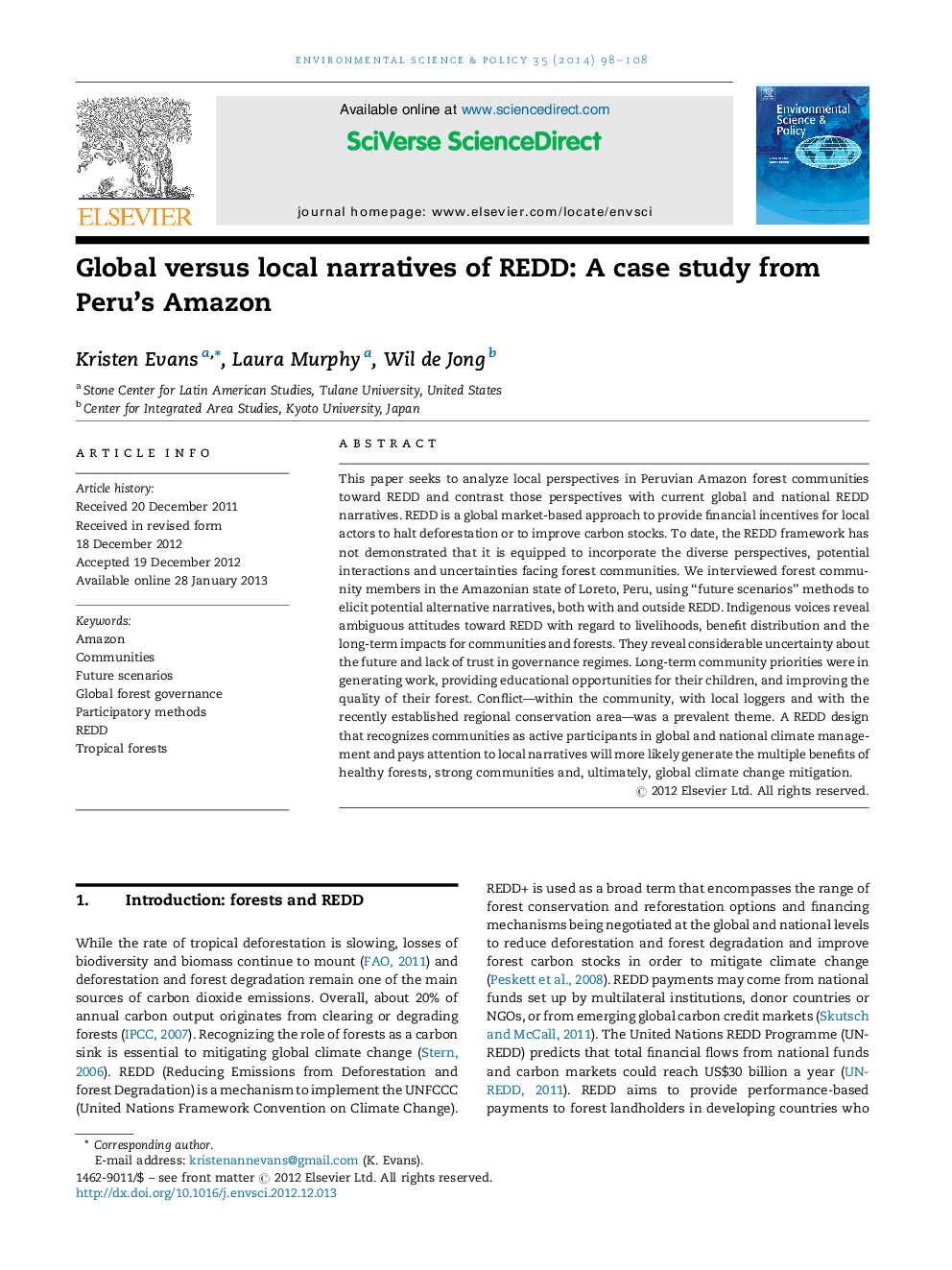| Article ID | Journal | Published Year | Pages | File Type |
|---|---|---|---|---|
| 1053565 | Environmental Science & Policy | 2014 | 11 Pages |
This paper seeks to analyze local perspectives in Peruvian Amazon forest communities toward REDD and contrast those perspectives with current global and national REDD narratives. REDD is a global market-based approach to provide financial incentives for local actors to halt deforestation or to improve carbon stocks. To date, the REDD framework has not demonstrated that it is equipped to incorporate the diverse perspectives, potential interactions and uncertainties facing forest communities. We interviewed forest community members in the Amazonian state of Loreto, Peru, using “future scenarios” methods to elicit potential alternative narratives, both with and outside REDD. Indigenous voices reveal ambiguous attitudes toward REDD with regard to livelihoods, benefit distribution and the long-term impacts for communities and forests. They reveal considerable uncertainty about the future and lack of trust in governance regimes. Long-term community priorities were in generating work, providing educational opportunities for their children, and improving the quality of their forest. Conflict—within the community, with local loggers and with the recently established regional conservation area—was a prevalent theme. A REDD design that recognizes communities as active participants in global and national climate management and pays attention to local narratives will more likely generate the multiple benefits of healthy forests, strong communities and, ultimately, global climate change mitigation.
► REDD proposals create fuzzy boundaries and interdependencies between forest communities and global carbon markets. ► Too little attention is being paid to the perspectives of communities about REDD. ► Obstacles to REDD implementation include a lack of communal administrative capacity to manage REDD and potential conflicts within the community. ► Long-term community priorities include generating work, providing educational opportunities for their children, and improving the quality of the forest. ► If REDD design and implementation can consider local narratives it will be more likely to become successful.
